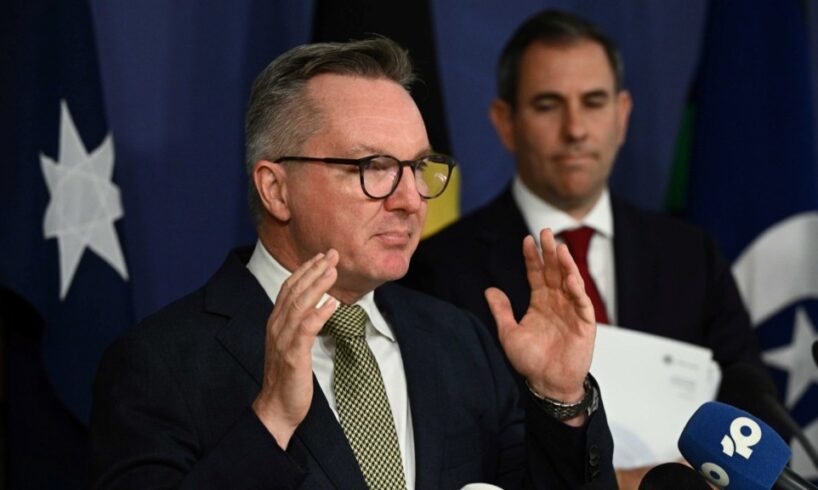
Last week, when the government announced its 2035 climate target, I made a decision: I wasn’t going to post about it. In fact, unlike most climate organisations (and many more corporates), I made the conscious decision to refrain from advocacy on the target altogether.
Now, that might sound odd coming from a climate activist (and the CEO of climate organisation Project Planet). But let me be clear: I absolutely think climate targets are important. I just don’t think my voice in the public conversation about them is the most useful.
What actually happened?
Labor last week accepted the Climate Change Authority’s independent advice and set Australia’s 2035 climate change target at a 62–70% reduction in emissions (based on 2005 levels). This is the number that will be submitted to the UN as part of our Paris Agreement obligations. Interestingly, the CCA originally recommended a range of 65–75%, but that was trimmed down at the last minute.
On paper, Australia now looks like it has lifted its ambition: from 43% by 2030 to up to (ideally) 70% by 2035. But in reality, the government has set a target that falls short of what’s required by science — at least 75% — to keep the world within 1.5°C of warming.
Related Article Block Placeholder
Article ID: 1222080
Like many in my position, I was disappointed by the announcement, but not surprised. I was never convinced that Labor would come out swinging with a truly ambitious target. But I haven’t expressed that disappointment publicly, via my organisation’s social media. Why?
Independent. Irreverent. In your inbox
Get the headlines they don’t want you to read. Sign up to Crikey’s free newsletters for fearless reporting, sharp analysis, and a touch of chaos
By continuing, you agree to our Terms & Conditions and Privacy Policy.
Of course, I’ve discussed the target with colleagues, peers, and friends in the movement — it’s all part of the work. But when it comes to speaking publicly, I’m deliberate. My social media audience isn’t made up of the key decision-makers influencing our targets; it’s everyday Australians who want to know what’s being done and what they can do. For them, debating percentages simply isn’t useful.
What my audience cares about
At Project Planet, my job is to talk to those in our community who are worried about climate change, but have no idea what they can do to help. For them, the government’s target isn’t something they can influence, and it’s definitely not how they measure their own choices. These Australians don’t stay up at night worrying whether the country is aiming for 62% or 75%.
They care about what’s tangible: cheaper energy bills, avoiding yet another summer of fires and floods, and knowing their kids will have a safe future. They want governments to walk the talk — to show integrity, not just spin. And when Labor continues to approve coal and gas projects, it cuts through far more than a percentage target ever could.
Targets as political theatre
In today’s political climate, targets are less about action than about point-scoring. Labor knows it can get away with a weak target because of the warped environment it’s operating in: a Coalition fighting over whether net zero should even exist, and Murdoch commentators dismissing the government’s recent climate risk assessment as “alarmist.”
In that context, 62–70% starts to look bold — even though it isn’t.
But that’s the game, right? Targets become symbols, sticks to beat opponents with, rather than actual policy to supercharge the transition. In the meantime, the government keeps approving new fossil fuel projects that make a mockery of the numbers, and creative accounting continues to overstate progress where there is none.
If I’d weighed in on the target last week, I would’ve been feeding that spin cycle — something I’m not interested in doing.
Why numbers don’t cut it
For years, targets have been the centrepiece of climate politics: the barometer of seriousness, the metric of credibility. But for me, focusing on the number itself is a trap.
The number matters for international investors and for the Paris process, sure. It gives a sense of direction, a signal that Australia is participating. But what message does it send to Australians who want more from the government they voted for?
Related Article Block Placeholder
Article ID: 1221873
The real test of this government’s climate credibility isn’t whether it can conjure a number that pleases the Paris Agreement. It’s whether the government stops approving new fossil fuel projects. It’s whether it treats the target as a starting point rather than an end point, and delivers tangible progress Australians can see — and feel.
Where does that leave my activism?
I will always push for more through a combination of more traditional activism that looks like loud public campaigning, like posting content, rallying or centring climate policy in a voting tool used by hundreds of thousands of Australian voters. But other times, like with this target, it will be behind the scenes.
When I do speak publicly, it will be targeted strategically at the people I’m trying to reach: those everyday Aussies who want to act but don’t always know how. My role is to cut through the noise and point to the things that matter. To hold the government accountable for the decisions they make today — the fossil fuel approvals, the subsidies, the investments in renewable energy, and the policies shaping our economy right now.
Those decisions can’t wait until 2035. They’re being made now, and Australians deserve a government willing to get them right.
Should the media stop focusing on climate targets as a measure of action on global warming?
We want to hear from you. Write to us at letters@crikey.com.au to be published in Crikey. Please include your full name. We reserve the right to edit for length and clarity.





